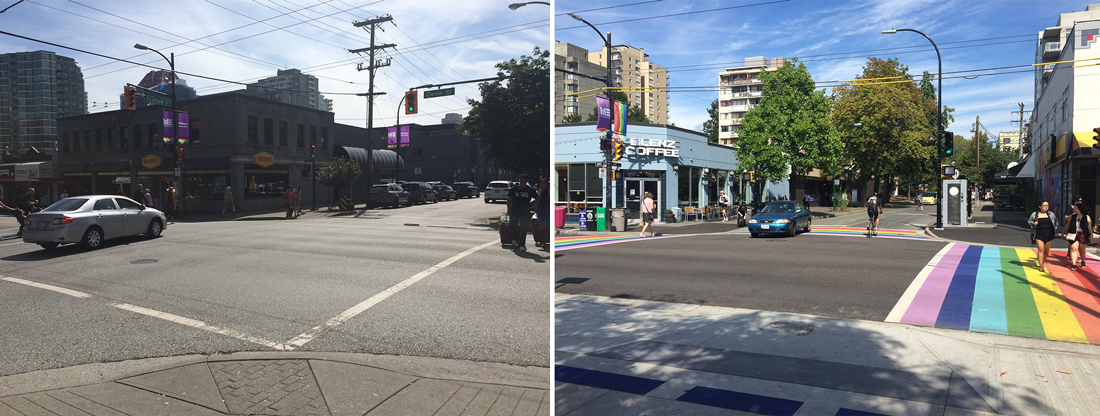Happy streets living lab
Exploring the link between public space improvements and trust, sociability, and wellbeing
Small-scale interventions have become a popular way to enhance public life in cities. How do they influence our feelings and behaviour?
This question inspired us to create an experiment in Vancouver, Canada to measure the effect that colourful or lush interventions have on people’s wellbeing. In particular, the experiment sought to understand how urban design influences people’s sense of trust in strangers, their feelings of happiness and their sense of belonging. Participants were led to three types of settings that most city-dwellers pass on a daily basis – a residential laneway, an intersection and a manicured green space. Participants then visited three similar sites where interventions had occurred.
Experiment results indicate that cities can indeed improve wellbeing, trust and belonging through interventions that inject nature, colour or unique elements into public space. Participants who experienced the interventions expressed a greater sense of happiness than they did at the standard sites. They felt more care for these places. They felt that strangers were more trustworthy. And they were more willing to pick up litter.
The experiment, which was carried out during Project for Public Space’s Pro Walk/Pro Bike/Pro Place conference, was an interdisciplinary collaboration between Happy Cities and the University of Waterloo’s Urban Realities Lab, supported by the City of Vancouver, MODUS and Project for Public Spaces.
Happy Streets green lane
Intersections: standard vs. rainbow
Wearable science
Rainbow crosswalk




